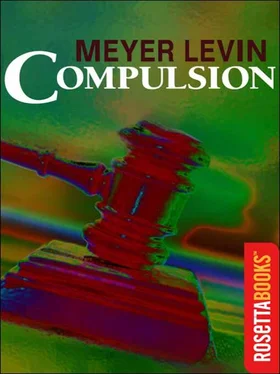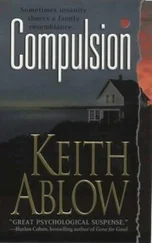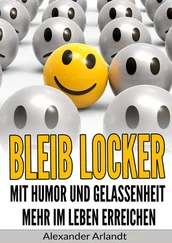The boys were looking at each other with pale, self-conscious grins. Horn went on. “‘He wanted to kill his associate, because he knew too much!’ What did he know?” He stared at Judd, then at Artie. If only he could have dragged them on to the stand! It was utterly clear now that the defence would never risk putting the boys in the witness chair.
Judd stared back at Horn. It was a bold look, a look that contained inner pride. He had not betrayed, he had kept the code.
That strange, brooding, perversely obstinate look of Judd’s remained with me as one of the fixed moments of the trial. Could it not have occurred to Judd that if a succession of crimes proved Artie demented, their fates might have been separated? Artie’s to an asylum, and his own, perhaps, for less than life in jail.
Had Judd actually taken part in the other crimes? Or had he only known of them? Artie’s words in the report suggested that he had always used an accomplice. But Artie was the less believable of the two.
Horn blunted himself against the stone wall of the unknown, but the episodes were to remain for ever a mystery, and in them, it has always seemed to me, lay the mystery of Artie, of his true mental state.
When Dr. Allwin stepped down from the stand, it was as though, for Judd, the most dangerous moment of the trial had passed. His eyes turned again to Artie, and there was a subtle smile between them, an instant of their old, intimate sharing.
Those were Horn’s days, and the defence seemed to recover only slight ground with a Sing Sing alienist who had specialized in juvenile delinquency. Dr. Holliday pointed out that Judd’s mania for collecting things, his mania for perfection, fitted in with the “compulsive behaviour” of manic patients, and that his thinking was “autistic”, a new word to us then. As I understood the explanation he made, it is the belief that things really are the way we imagine they are – a kind of self-contained magical thinking, without reference to the outside realities. Both boys had this characteristic to some extent, Holliday said, for it was a splitting off from reality. He showed how Judd’s planning even manifested itself in anticipation of his execution. He would make a great speech from the platform. He would convey his philosophy to the world; he would be “consistent” to the end.
And Artie, in contrast, was indifferent, passive. Hanging seemed hardly a real possibility to him, but something that might happen to someone else. He had said, “Well, it’s too bad a fellow won’t be able to read about it in the newspapers.” And if he got a prison sentence, and at some time came out, Artie wanted to know if at that time he could get a complete file of the newspapers of this period. “I have examined a lot of hardened criminals in my lifetime, but-”
Horn interrupted, objecting, and Feldscher helped the doctor, by reformulation: “Did your experience in your work at Sing Sing in examining over two thousand prisoners aid you in forming any conclusions in reference to Artie Straus in his emotional responses or lack of them?”
“Yes. The hardened criminal shows in every response a kind of crudity. Straus seems to be incapable of responding to this situation with an adequate emotional response. His actions can only become comprehensible when one keeps in mind that one is dealing here with a disintegrated or not completely integrated personality, a split personality, if we will.”
“Or to use another term,” Horn interjected rather feebly, “he is insane?”
The studious Holliday was followed by a gland specialist, Dr. Vincenti, an extreme enthusiast of the new science. Younger than the others, he had a quick, wide-eyed air about him, as though the whole thing were altogether too self-evident. He produced his X-ray pictures of Judd’s cella turcica , the cradle of bone, holding the pineal gland. There! Anyone could see it was already calcified! Calcified at nineteen! All of Judd’s disorders might have resulted from this early calcification. His illnesses, his sexual maladjustment, everything!
As for Artie, his low basal metabolism was an indication of poor functioning of the endocrine glands and accounted for his periods of morbid depression, his suicidal tendencies, and his lack of sexual development.
On this note, the defence testimony ended. It was a weak ending. Disingenuously, Horn asked: The doctor was positive, was he, of his interpretation of all of this new-fangled science?
Vincenti beamed. Positive.
The prosecution’s first rebuttal witness was a gland specialist who promptly declared that nobody knew a thing about the ductless glands. Redheaded, truculent, forthright, Horn’s expert set the courtroom howling with laughter. Never had an expert proved he knew so much as Dr. Leahy did by explaining how little he knew.
Had he specialized in the endocrine glands? Yes, for fifteen years and more. Come to any conclusions? Exactly none. “Except for certain isolated facts, the status of our knowledge of the endocrine glands might be compared to our knowledge of Central Africa before Stanley’s day.”
Could glandular activity have an effect on emotional growth?
“Your guess is as good as mine or any other expert’s.”
So much, said Horn, for Judd’s famous cella turcica . And he proceeded to produce his other counter-alienists.
Against Hugh Allwin, there was the elderly Arthur Ball, a hometown authority who could stand up against the biggest man from the East.
Yes, he had been called in, that Sunday, to examine the young gentlemen. Mr. Horn had then asked the young gentlemen to tell their story, and they had done so in detail. “The other young gentleman had done most of the talking, with occasional corrections from Mr. Straus-”
“Mr. Steiner, you mean?”
“Yes. Mr. Steiner.” He smiled, to accent that the confusion was natural.
“Now, doctor, from any interview which you had with Straus or Steiner, do you know anything that might throw some light on the motive for this crime?”
“I remember Mr. Straus said, ‘God, I don’t know why’.” Once more he was straightened out. Wasn’t it Mr. Steiner who had said that? The professor looked from one to the other, fixing them in his mind. Yes, that was Steiner’s remark, the short one. The tall one, Mr. Straus, had said it was for the thrill, the experience, and the money.
“Did they speak of the ransom?”
“They were going to keep the money hidden in a safe-deposit box and none of it was to be spent within a year inside of Chicago, but one of them expected to go to Mexico.” He looked at them carefully. “Mr. Straus, that was.” He smiled at having got it correct. “And the other, Mr. Steiner, was going to Europe.”
Horn opened the Storrs-Allwin report. Now, if the professor was familiar with this report -?
But the professor was not. He had not even seen it.
Would he care to examine it?
Indeed he would, as he was always curious about new psychology.
Smilingly, the members of the defence counsel agreed to an adjournment, since noon was close. When court resumed, the professor said that he had thoroughly studied the report. Horn opened his copy. From the evidence in the report, would he conclude that either of the defendants indulged in fantasies to an extreme degree?
No, they seemed the fantasies that a normal boy indulges in.
Judge Matthewson was leaning forward on both elbows. Professor Ball expatiated. “Everybody has fantasies. A lawyer has fantasies about winning a big case. A golfer has fantasies about playing a good golf game, and a young man of criminalistic tendencies, like the young gentleman here, Artie, quite naturally had criminalistic fantasies. Unless one wishes to take the crime itself as proving an abnormal mind, there is nothing abnormal in the fantasies as reported.”
Читать дальше












